10 Trump-driven changes that will have Beijing cheering
The Trump transformation is opening the door to the golden future of assured domination that Xi Jinping’s Chinese Communist Party covets. Domination at home, domination in the region around China, and most importantly, domination beyond.

The Trump transformation is opening the door to the golden future of assured domination that Xi Jinping’s Chinese Communist Party covets.
Secure domination at home. Domination in the region around China. And domination beyond, in the global south that Beijing has done so much to court – including domination of the sea lanes on which Australia depends for our economic survival.
Last week Chinese officials shrugged aside any criticism of their powerful People’s Liberation Army Navy vessels conducting live-fire exercises off our coast, indicating that such taskforces might return as suited.
Such voyages send a message about who now rules the waves and why we should stop sending our own naval vessels through the South China Sea that China claims to own fully; they help train PLAN personnel; and they collect knowledge, chiefly about Australian military capacity or lack thereof.
In Beijing, spring is in the air as the big annual National People’s Congress session continues in the Great Hall of the People this weekend.
There also is a fresh spring in Xi’s step that wasn’t so apparent as his ascendancy seemed hemmed in by economic, demographic and social drift at home. Now the doors are opening for the party to claim new popular domestic legitimacy from a return to tianxia – the ancient concept of China guiding world order, “all under heaven”.
The leading democratic power, the US, with which Xi has sought to contend, appears to be gripped in spiralling enmity with other democracies.
US President Donald Trump may be crowing, as we saw in his congressional address this week, but it is the totalitarian world that is truly cock-a-hoop, including China, Russia and North Korea – the last being China’s only full ally and the supplier of thousands of mercenaries to join Russia’s fight against Ukraine.
Xi will have enjoyed immensely viewing on TV the shocking Oval Office scene where Trump and his offsider JD Vance lambasted live Volodymyr Zelensky, the bravest leader in the world, who was conversing in his third language.
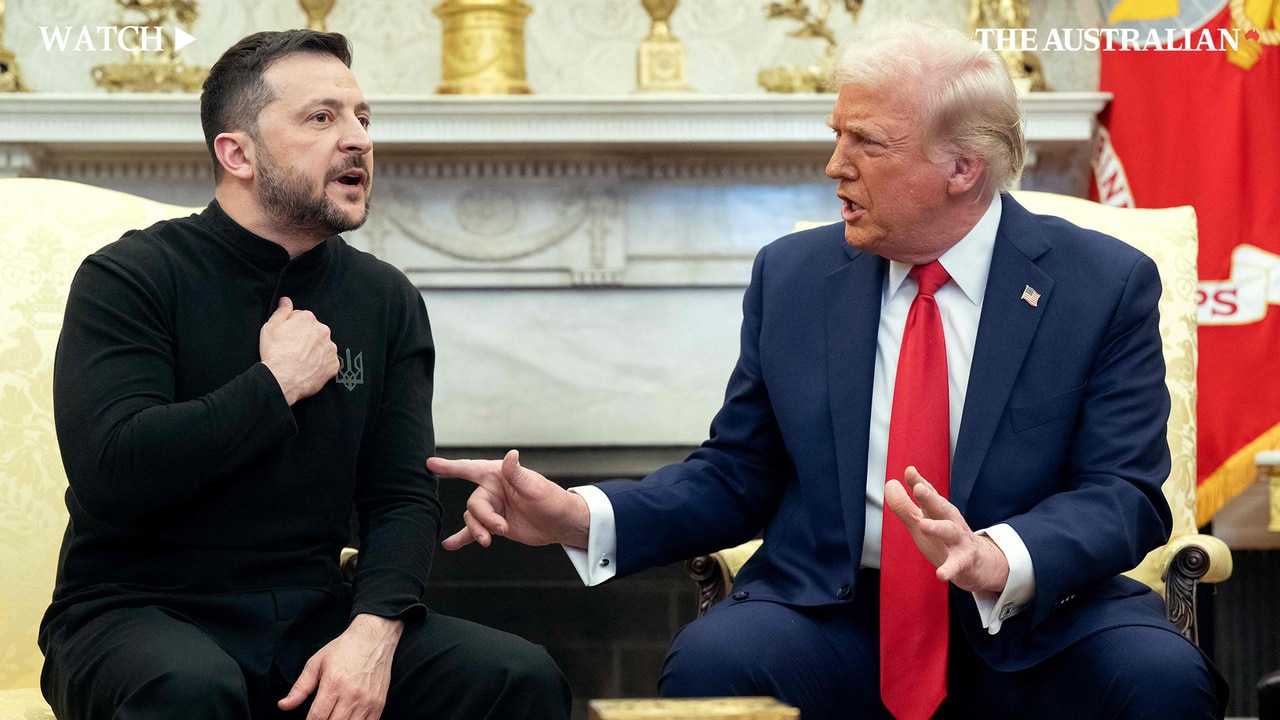
Every democratic leader who flies to Washington will now be checking the acceptability of their dress as well as wondering: “Will I be next? Can I force myself to be sufficiently thankful and contrite? Should I?”
Xi describes Vladimir Putin, the great winner of the Oval Office tirades, as “my best, most intimate friend”. These friends, Xi says, are embarked together in driving “changes, the likes of which we haven’t seen for 100 years”, since the Russian Revolution and the birth of Chinese communism, “and we are the ones driving these changes together”.
Author and former senior intelligence analyst Paul Monk remarked frighteningly, before the Oval Office meltdown: “Taiwan is our Ukraine.” The precedent of Trump preferencing Russia over Ukraine must loom disturbingly large for Taiwan’s President Lai Ching-te, also known as William Lai.
Just as Putin is closing in on Ukraine, so Xi is anticipating that opportunity is knocking, to fulfil the obligation he enunciated six years ago that seizing Taiwan “should not be left to future generations”.
Chinese Defence Ministry spokesman Wu Qian told Taiwan last week: “We will come and get you, sooner or later.”
The impact of letting China take out East Asia’s liveliest and most progressive democracy would cascade catastrophically through our region for decades to come and change Australia significantly, for much the worse.
Xi, who does not fully trust his own military, could yet be thwarted if Australia and its close partners including Japan, The Philippines, South Korea and New Zealand – which was able to shadow the Chinese taskforce when Australia’s navy couldn’t – step up rapidly their own deterrent military capacities and their co-operative efforts with Taiwan.
It is also vital for the US, whose firm backing matters most, to recommit support for Taiwan.
China under Xi has invested considerable capital in gaining ascendancy over the US in multinational platforms led by the UN, seeking therein to build “a community of common destiny” that will prioritise his own global security, civilisation and development initiatives.
But we in Australia, too, are now wondering about Washington’s resolve, as did Trump in answering a question about AUKUS last month with a further question: “What does that mean?”
The US vote backing Russia at the UN General Assembly on the third anniversary of Putin’s invasion, and its halt to military supplies for Ukraine, would have cheered Xi.
China has invested considerable capital in gaining the ascendancy over the US in multinational platforms, seeking to build “a community of common destiny” to prioritise his own Global Security, Civilisation and Development Initiatives.
Trump’s withdrawal of the US from the World Health Organisation, the Paris Agreement on climate change and the UN Human Rights Council also further opens doors for greater Chinese influence.
China’s economic rise was facilitated by the globalisation then championed by the US, which took on the role of world policeman, maintained the international reserve currency and sustained unemployment as others led by China replaced much of the US’s manufacturing base.
Beijing’s capacity to replace the US as global leader is limited by its own constrained resources, with enormous outstanding loans, and by its disinclination to take on a policing role or to tolerate any loss of its status as the world’s factory.
But it will seek to seize the day in other ways, including dominating the supply of goods such as electric vehicles with which the producer can communicate, as well as through its rapid military modernisation.
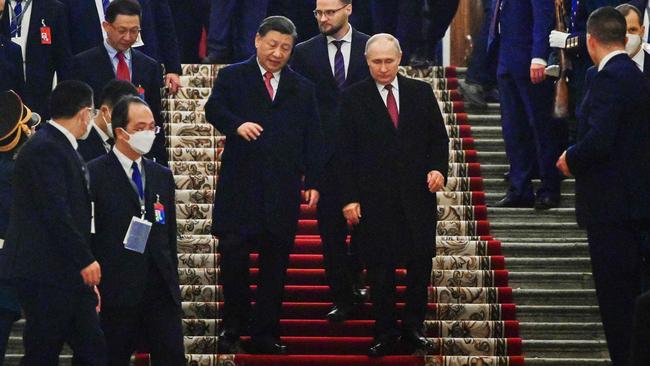
Beijing will build on its formerly insignificant soft power through infrastructure loans and through discourse strength as the US retreats, including as Washington withdraws its former aid efforts to help countries increase governance resilience and openness.
When Trump came to Beijing as president last time around, in 2017, Xi acted the gracious and urbane emperor showing the visitors from up-country exquisite features of the Forbidden City.
They took tea in the Hall of Embodied Treasures, where Trump presented his hosts a video of his granddaughter Arabella reciting ancient Chinese poetry. Xi generously graded her performance “A-plus”. They all then watched a Peking Opera performance in the three-storey Pavilion of Cheerful Melodies.
So far in 2025, Trump’s China Tune remains a cheerful one, maybe even scoring an A-plus, as the rulers in Beijing are hearing it.
During that 2017 visit, China’s Global Times editorialised: “Trump seems to be pragmatic on his Beijing policy and has no interest in ideological diplomacy. He hasn’t used the issue of human rights to make trouble for China so far, and this means the Sino-US relationship can focus on substantive matters.”
To date, that has held in 2025, too.
Here are 10 other Trump-driven examples of why Beijing may be beaming today:
1. Putin
Preferencing Putin – calling him “a genius” – over Zelensky, the dictator over the democrat. Xi signed a “no-limits” agreement between Russia and China, and told Putin in a February 2024 phone call that their countries were “true friends who have been through thick and thin together”.
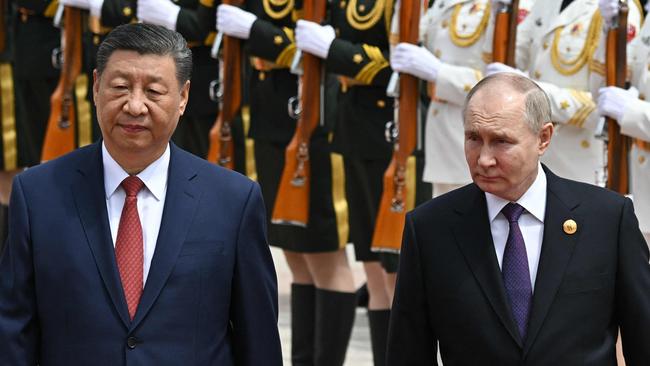
2. Tariffs
The 20 per cent tariffs on imports from China will naturally be paid by American consumers and businesses. It will not cause serious damage to Chinese corporations. While the US is China’s biggest single national export market, it buys just 16 per cent of all Chinese exports. For China, the Association of Southeast Asian Nations countries, then the EU, are bigger markets than the US. And for Xi, though this may baffle other world leaders, the economy is not his top priority.
3. TikTok
Trump’s reprieve of TikTok, the social media platform owned by Beijing-based ByteDance Ltd, from a congressional ban, is a win. To maintain political approval, TikTok must safeguard the world view and core values of the CCP. Its influence power in Western markets led by the US is of considerable value for Beijing.
4. Non-for-profits
The temporary dismantling of the US Agency for International Development provides an especially big win for the CCP, halting the work of many not-for-profit organisations, such as Freedom House that lead research on Chinese repressions, from Uighur “re-education” camps to worker abuse. They depend significantly on US government support since business, much of which anxiously covets its China access, provides scant funding. Maya Wang of Human Rights Watch told The Economist that in this respect Washington was now “essentially doing the job of the Chinese government for it”.
5. Intelligence
Trump’s Attorney-General Pam Bondi swiftly disbanded the FBI’s foreign influence taskforce and pared back enforcement of the Foreign Agents Registration Act, despite intelligence agencies showing how foreign malign influence operations have become a growing threat to the US, with China and Russia inevitably leading such efforts. Bondi also disbanded the corporate enforcement unit within the Justice Department’s national security division – which had focused on corrupt payments and bribes, with Chinese and Russian individuals and institutions prominent targets. She directed her department’s counterintelligence and export control section to downplay its focus on foreign interference.
6. Taiwan
Instead of planning to work more closely with free and democratic Taiwan and benefiting from access to its thriving hi-tech sector, Trump has lamented: “How stupid are we? They took all of our chip business.” Now, he says, “We want that business back.” But Taiwan’s biggest semiconductor manufacturer, Taiwan Semiconductor Manufacturing Company, leapt ahead of its competitors – then chiefly American – more than 30 years ago through a revolutionary business model, manufacturing to designs produced by clients. It stays ahead of the rest of the world – its chief competitor now being South Korea’s Samsung – mainly through its world-leading research and development program, which rises an average 15 per cent every year, reaching $9.5bn in 2023.
Beijing’s Made in China 2025 hi-tech program has registered considerable achievements but hasn’t caught up with TSMC. If Trump’s promised huge tariffs can damage TSMC significantly, that will give China the opportunity it’s been seeking.
7. World views
Trump’s close associates have involvements and world views that suit Beijing nicely. Elon Musk’s “gigafactory” in Shanghai is Tesla’s biggest in the world. In January he told China’s Vice-President Han Zheng he would “play an active role in promoting” US-China exchanges.
Musk has expressed awe about China, that the “world has never seen human energy and vigour at such scale”, adding that Beijing is “on Team Humanity” in its development of artificial intelligence. He has been applauded by Chinese leaders for his views on Taiwan, about which he said: “It may be just analogous to Hawaii or something, like an integral part of China that is arbitrarily not part of China … My recommendation would be to figure out a special administrative zone (of China) for Taiwan that is reasonably palatable, probably won’t make everyone happy.”
US Vice-President Vance said: “The threat that I worry most about vis-a-vis Europe is not Russia, not China … It is the threat from within.” Kash Patel, the new FBI director, continues to hold shares worth between $US1m and $US5m ($8m) in Elite Depot, the parent of huge Chinese online retailer Shein, provided in return for consulting for the company, which is preparing to list in London.
Shein has denied claims, which persist, of its supply chain including products made by forced labour in Xinjiang, whose Uighur population has come under hyper-control by Beijing.
And Donald Trump Jr wrote recently supporting coming to a “balance of power” with China and commending his father’s “openness to negotiation with Xi Jinping and avoiding poking the dragon in the eye unnecessarily”.
8. Ukraine
The US President has complained about supporting Ukraine: “We are spending our treasure on a country that’s very far away.” However, Ukraine is considerably closer to Washington than Taiwan is to Los Angeles. The Republican Party’s backing of Taiwan has remained one of its core values since 1949, when the CCP defeated Chiang Kai-shek’s Kuomintang, who retreated to Taiwan. But so many other core Republican values have been reversed under Trump, that Taiwan support also must be viewed as readily shed.
Six months ago, Trump said: “Taiwan should pay us for defence … You know, we’re no different than an insurance company.” Trump’s former national security adviser John Bolton said the President “would hold up the tip of his pen and say, ‘That’s Taiwan. See this desk, that’s China.’ His point: Taiwan is too small to defend itself against a Chinese invasion – and too small for the US to care about.”
China analyst Howard French reminds of how, in a chilling parallel, Beijing’s then foreign minister Yang Jiechi told a summit of the 10 ASEAN members in Hanoi that “China is a big country and you are small countries, and that is a fact”.
9. Investments
New restrictions on US corporate investments in China, especially in hi-tech operations, were removed late last year as part of a deal led by the Republicans in Congress that averted a government shutdown. A slightly earlier version, also dumped, included a review of Chinese property purchases near national security-sensitive sites and a study of security risks posed by Chinese-made consumer modems and routers.
10. NED
Under orders from Musk’s Department of Government Efficiency, the US Treasury has frozen funding to the National Endowment for Democracy, a 41-year-old organisation focused on countering communism around the world and promoting democracy, which has been bitterly targeted by the CCP. The CCP-owned China Daily editorialised recently that the NED “has long engaged in conducting ideological infiltration … Its innumerable evil deeds have caused grave harm.” Musk echoed this attack recently, describing the NED as an “evil organisation that needs to be dissolved”.
The general strategic setting of this early version of Team Trump 2.0 – and the direction may yet change – seems to follow “realist” thinking in dividing the world into three spheres of influence, with the US controlling the Western world as broadly cast, Russia the lands straddling the east of Europe and the west of Asia, and China the East as it’s seen from Washington – including Taiwan.
Australia cannot be sure of where we might fit into such a world view. We may come to be perceived over time, because of our resumed economic dependence as well as our geography, as most closely associated with the putatively China-dominated East.
Despite China’s own demographic and economic stagnation, Xi continues to see “the West declining, the East rising”, with the long-established maritime powers in Europe and the US making way for China-controlled Asian leadership that includes the global south, won over by large Belt and Road Initiative loans.
Trump wants to do deals – or grand bargains – with not only Putin but also Xi, who will likely lead China for far longer than Trump can lead the US, given his genes. Xi’s term as general secretary of the CCP has no limit. He is now 71, seven years younger than Trump. His father died aged 88 and his mother remains alive, aged 98.
Trump has said recently: “I like President Xi very much. I’ve always liked him. He controls 1.4 billion people with an iron fist. I mean, he’s a brilliant guy, whether you like it or not.”
Events in Washington already this year comprise for Xi the icing on the cake – or the soy sauce on the noodles – as he forges ahead in the international battle of ideas and for influence.
Naturally, any close comparisons with the darkling world of almost a century ago have limitations. But the brave, defiant and at the time deeply unpopular parliamentary speech made by Winston Churchill on October 5, 1938 commands revisiting. Then, British prime minister Neville Chamberlain was still basking in applause for winning Adolf Hitler’s signature to the “peace in our time” Munich Agreement just a week earlier, with Churchill languishing in the political wilderness.
Churchill told the rancorous House of Commons: “Silent, mournful, abandoned, broken, Czechoslovakia” – effectively handed at Munich to Nazi Germany – “recedes into the darkness. She has suffered in every respect by her association with the Western democracies …
“This particular block of land, this mass of human beings to be handed over, has never expressed the desire to go into the Nazi rule … It must now be accepted that all the countries of Central and Eastern Europe will make the best terms they can with the triumphant Nazi power.”
History is not destiny, and we’re not there yet. But Churchill’s speech still resonates today, as concerns grow for Ukraine, and also for Taiwan, and well beyond.
Rowan Callick is an industry fellow at Griffith University’s Asia Institute and an expert associate at the Australian National University’s National Security College.


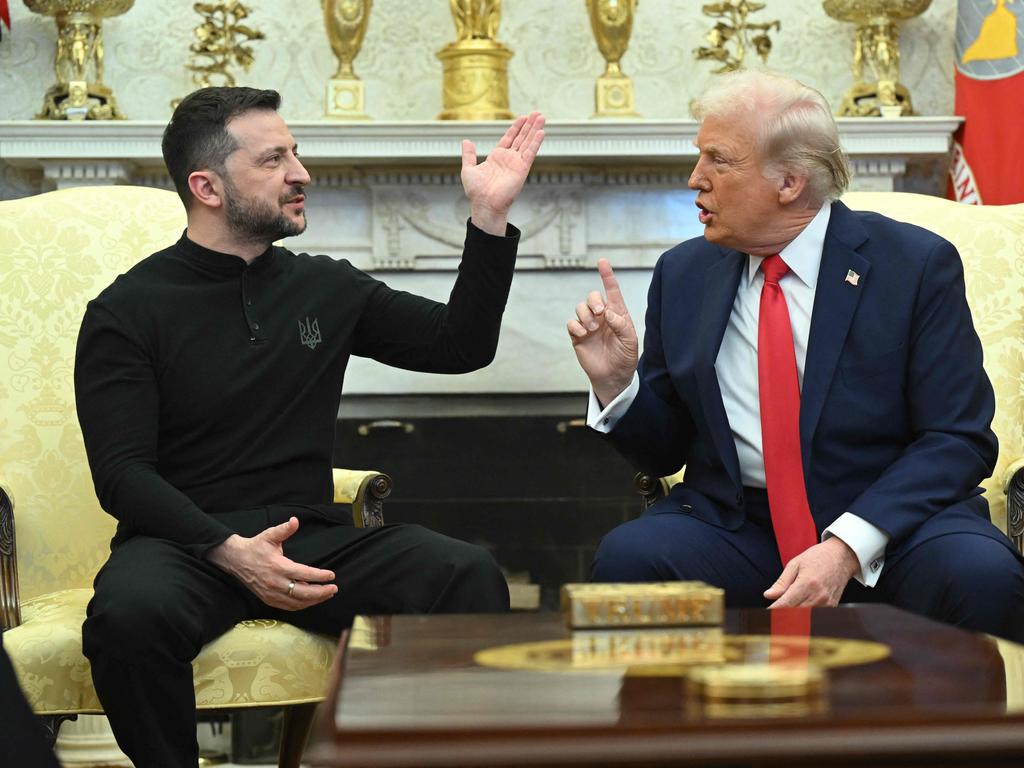

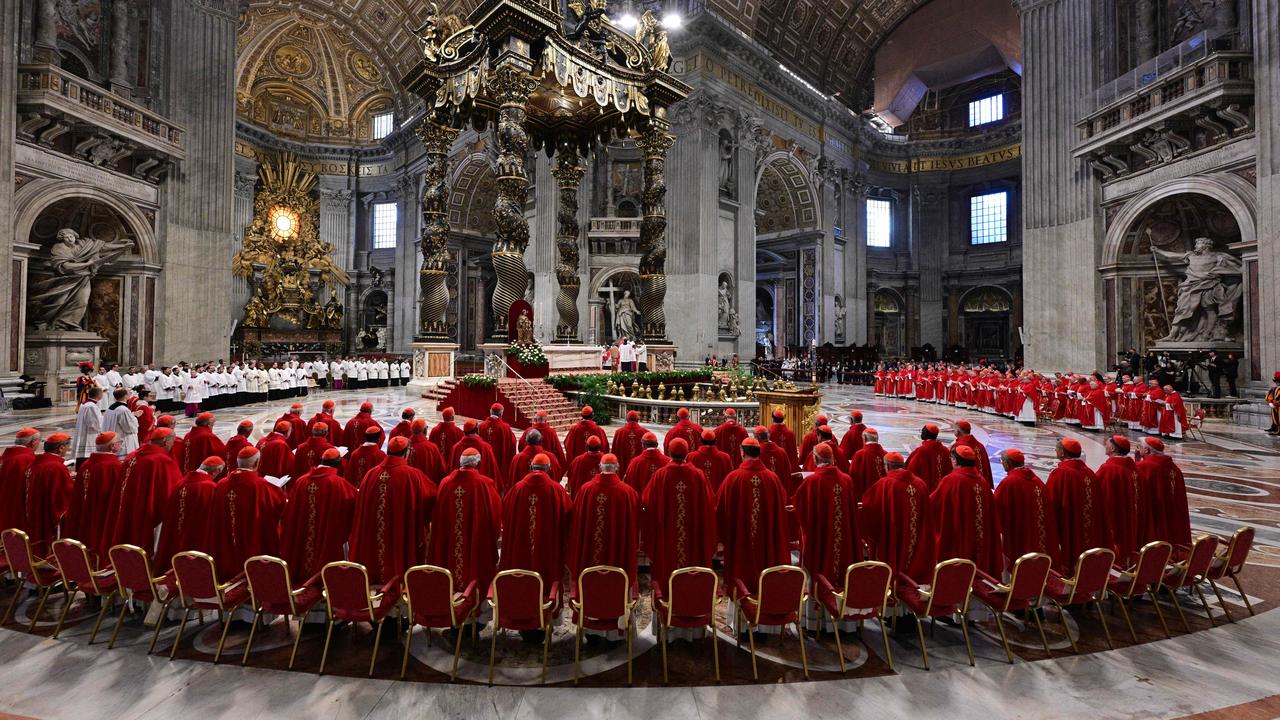

To join the conversation, please log in. Don't have an account? Register
Join the conversation, you are commenting as Logout